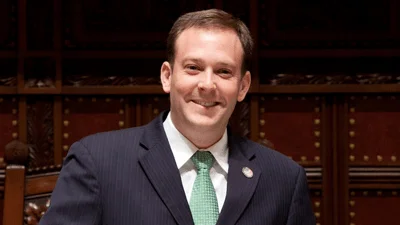The U.S. Department of Agriculture recently announced its plan to invest $300 million through President Joe Biden's Investing in America agenda to improve the measurement and monitoring of greenhouse gas emissions and carbon sequestration in agriculture and forestry.
This investment supports the broader Federal Strategy to Advance Greenhouse Gas Measurement and Monitoring, according to a July 12 USDA news release. The USDA aims to enhance accuracy, reduce uncertainty and increase confidence in greenhouse gas estimates through this funding.
“Since day one, the Biden-Harris administration has taken bold steps in climate-smart agriculture by making programs as strong and effective as possible," Secretary of Agriculture Tom Vilsack said in the release. "To do this, we have to improve the scientific backbone of our programs."
He added this investment to improve data and the measuring of greenhouse gas emissions "is unmatched in its scope and potential to increase accuracy, reduce uncertainty and enhance overall confidence in these estimates," according to the release.
"We’re data driven, and we seek continuous improvement in our climate-smart agriculture and forestry efforts,” Vilsack said in the release.
This investment aligns with Biden's goal of reducing greenhouse gas emissions by 50-52%t by 2030, the release reported.
The Inflation Reduction Act, which provided nearly $20 billion for climate-smart agriculture and forestry practices, tasked the USDA with quantifying and tracking carbon sequestration and greenhouse gas emissions, according to the release. To fulfill this task, the USDA identified seven focus areas, including establishing research networks, expanding data management, improving models and tools and strengthening the Greenhouse Gas Inventory and Assessment Program.
This announcement builds on the USDA's ongoing efforts to support climate-smart agriculture, including investing in projects through the Partnerships for Climate-Smart Commodities opportunity, the release said.
The Inflation Reduction Act investment will complement other initiatives, such as soil carbon sampling and climate outcomes of the Conservation Reserve Program, in order to achieve the Biden-Harris administration's vision of a resilient, clean energy economy that addresses the climate crisis, the release reported.





